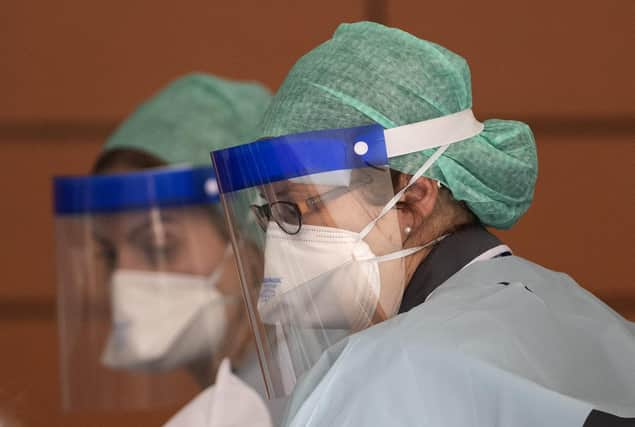Covid: Second wave should not see NHS reduce its services to the same extent as the first – Alisdair Gilmour


The past seven months have been difficult, to say the least: a nationwide lockdown, hundreds of thousands of tests carried out, far too many lives lost.
For junior doctors in Scotland, many went into 2020 expecting to finish their training and progress onto the next stage of their career.
Advertisement
Hide AdAdvertisement
Hide AdHowever, many training programmes ground to a halt back in March as an all-hands-on-deck approach was taken and, for a lot of junior doctors, that has meant fewer hours in the operating theatre, out-patient clinic, or less time spent in their specialty.
I consider myself to be very fortunate – I’m a trauma and orthopaedic surgery trainee, and currently spend most of my time at the Golden Jubilee National Hospital where I’ve been able to continue much of my training without too much disruption. I am due to complete training in August 2021 and, even with cases of Covid-19 on the rise again, I am hoping to make it over the remaining hurdles.
Unfortunately, I cannot say the same for all of my colleagues across the specialties and especially those a couple of years behind. Many of them are now looking at another six months – perhaps even a year or longer – of additional training in order to get the competencies and skills they need to progress.
In the grand scheme of things, particularly doctor training, an extra few months isn’t a huge deal. However, it’s the long-term impact this could have on the NHS in Scotland that causes me real concern.
Our key concern is patients: they’re why we go into medicine in the first place. And in order to provide the consultants of tomorrow, we must receive the proper training – something I’m sure our patients also want us to have.
The more delays there are to services restarting, the longer the delay in education goes on. That bottleneck of junior doctors trying to complete their training could potentially have a knock-on effect to the ongoing supply of trained doctors we so desperately need in Scotland to replace those who are retiring over the next few months and years.
We still don’t truly know what is ahead of us in the coming months – but one thing I am fairly certain about is that we are likely to face a very difficult winter as we navigate rising cases of Covid-19 as well as all the usual winter illnesses, not to mention the existing long-term illnesses many people are currently living with. Patients need us more than ever and we want to do our very best for them.
That is why it is essential for education and training to continue now that we have started to remobilise the NHS in Scotland and, even if we have a second wave of Covid-19, services are not stopped again – not just for career progression for Scotland’s doctors but, most importantly, to deliver frontline elective and emergency care across our health service, now and in the years to come.
Advertisement
Hide AdAdvertisement
Hide AdAlisdair Gilmour is chair of the BMA’s Scottish Junior Doctor Committee
A message from the Editor:
Thank you for reading this article. We're more reliant on your support than ever as the shift in consumer habits brought about by coronavirus impacts our advertisers.
If you haven't already, please consider supporting our trusted, fact-checked journalism by taking out a digital subscription.
Comments
Want to join the conversation? Please or to comment on this article.